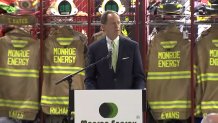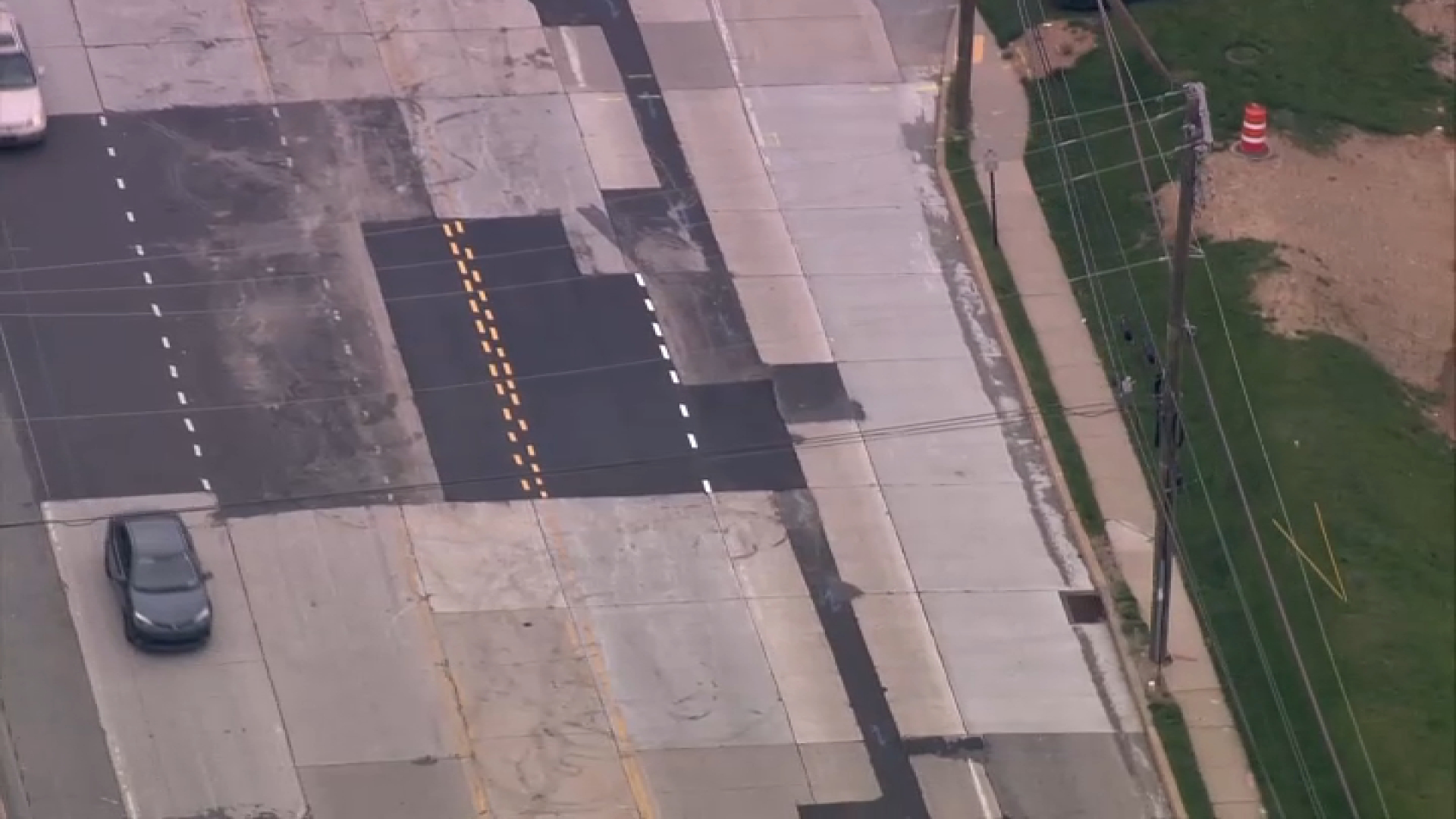Andrew Wheeler, a former coal industry lobbyist who now runs the U.S. Environmental Protection Agency, visited a gas refinery just south of Philadelphia on Monday.
Wheeler, who took over the EPA after President Donald Trump nominated him earlier this year to replace disgraced former agency leader Scott Pruitt, touted the amount of environmental regulations he has eliminated.
"Under President Trump, we have finalized 41 deregulatory actions, saving Americans more than $3.5 billion over the last 2 and a half years," Wheeler said. "We have 47 additional actions projected to save billions more."
U.S. Sen. Pat Toomey, R-Pennsylvania, brought Wheeler to southeastern Pennsylvania and Monroe Energy, a subsidiary of Delta Airlines. Monroe refines oil into jet fuel at a facility in Marcus Hook.
What Else Did Andrew Wheeler Say? First: On Clean Air
The EPA administrator spoke to his audience, giving them insight into the philosophy of his agency under President Trump.
"We recognize that refiners have already spent billions of dollars to reduce omissions and improve air quality," Wheeler said. "Rather than impose top down mandates from Washington, we want to work with you to improve environmental protections in a way that doesn’t jeopardize this historic economic growth we’re seeing."
Local
Breaking news and the stories that matter to your neighborhood.
He noted that since the federal Clean Air Act was expanded by Congress in 1970, air pollution in the United States has decreased by 74 percent while the economy has grown 275 percent.
"I want to say that again because the media never covers that. Since 1970, the six criteria air pollutants have declined by 74 percent," he reiterated. "We have cleaner air today than we ever had in the last 49 years."
That is consistent with EPA findings, according to an official with the Union of Concerned Scientists, but there is an irony in Wheeler's appreciation for the decline.
"That decline is due to regulation," Elliott Negin of the UCS said in an interview. "By the way, that’s because these polluting industries had to clean up their act: adding scrubbers and filters to their facilities. The reason why that’s true is because of regulations. These industries weren’t going to do that out of the kindness of their hearts."
Second: On Saving Money by Less Regulation
In addition to the billions Wheeler says the current administration has saved taxpayers through deregulation of environmental safeguards established by previous presidential administrations, he also noted other changes that have saved millions.
Last fall, Wheeler said he signed a final action "to make important improvements" to 2015 rules imposed on the petroleum industry
"Our commonsense changes reduce compliance costs on your sector by nearly $12 million and save nearly $80 million in capital investments," he said at the refinery.
Wheeler has been in charge of the EPA since July 2018, when the president appointed him acting administrator following Pruitt's resignation. Wheeler was then nominated by Trump and confirmed by the Senate as administrator in February of this year.
While still in his acting role, Wheeler demoted the agency's science adviser. Previously, the position reported directly to the EPA administrator. Under the new organizational chart, the Office of the Science Adviser is nestled within the EPA's Office of Research and Development, reporting to an assistant administrator.
Wheeler worked for the EPA in the 1990s, then took a job in the office of Sen. Jim Inhofe (R-Oklahoma) who is a climate change denier.
After leaving Inhofe's office, Wheeler worked as a lobbyist for Murray Energy, one of the nation's largest coal mining companies.
"The benefits of the regulations far outweigh the costs to industry," Negin, with the scientist advocacy group, said. "That includes the health and less costs in avoided hospital visits, asthma attacks, heart attacks and avoided premature deaths."
Third: On the Bankrupt Philadelphia Refinery That Exploded, Is Slated for Closure
The Philadelphia Energy Solutions refinery in South Philadelphia exploded June 21, and has been closed since then. The facility has employed hundreds for nearly a century, but also been the city's largest polluter for decades.
PES filed for bankruptcy and is likely to sell off the refinery. Some politicians, which apparently includes Toomey, are holding out hope that the refinery can be saved in order to save the existing jobs. Toomey, in particular, is targeting a federal renewable fuel standard that involves ethanol production.

"We need to fix that because when we fix that we dramatically improve the chances that that facility is once again thriving and employing hundreds of people," Toomey said at the Monroe Energy event.
Wheeler said that a decision about the future of the refinery, which was the largest on the East Coast, isn't for the EPA to make.
"I don’t know the condition of the facility after the fires, if it’s worth salvaging," he said.



